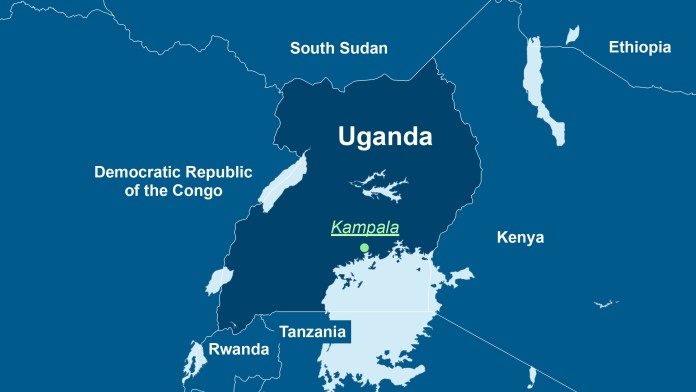
Compared to many countries in the region, Uganda is a stable anchor in eastern Africa and accommodates a large number of refugees from neighbouring countries. Uganda is rich in natural resources, such as fertile soils, but also in raw materials, and it still has untapped oil and gas reserves. The country’s economic output depends heavily on agriculture, which provides the livelihood for around 70% of its inhabitants. The country’s main exports are coffee, tea and fish.
The Covid-19 pandemic has significantly dampened economic growth and price developments on global markets have also had an adverse effect on Uganda’s development. Population growth is high, with almost half (46.5%) of residents younger than 15 years old. Uganda remains one of the poorest countries in the world. Agriculture benefits from fertile soil, but is not very productive because it lacks adapted seeds, fertilisers and mechanisation. Infrastructure is heavily congested, especially in rural areas and in the regions hosting refugees. There is a lack of sufficient capacity for water supply and access to education and health care.
On behalf of the German Federal Government, KfW is cooperating with Uganda in the following areas:
Uganda implements a liberal and comparatively generous refugee policy. Refugees are usually allocated a piece of land that they can cultivate. However, due to the ongoing influx of refugees, the parcels of land are becoming smaller and smaller, and livelihoods must be secured by cultivation of this land. There is often no access to clean drinking water. KfW is promoting the expansion of a climate-resilient water supply and sanitation for refugees and host communities in northern Uganda.
The capacity for electricity generation in Uganda is well developed, but the electricity does not yet reach all communities. Around one third of the population does not have access to electricity. Therefore, the grid needs to be expanded but from a climate-friendly perspective. As part of the GET FiT programme (Global Energy Transfer Feed-in Tariff), KfW is financing a total of 17 small-scale power plants for the use of renewable energies. The programme is promoted by Germany, Norway, the United Kingdom, the EU and the World Bank. KfW is also supporting the construction of long-distance lines.
Agriculture is the backbone of the Ugandan economy. The effects of climate change, such as a shift in the rainy season, pose major challenges for farmers. KfW is committed to improving the water supply by building dams. It also helps local banks to facilitate access to loans for smallholders in order to promote mechanisation.
KfW is supporting Uganda’s efforts to stabilise the region and achieve sustainable development.
KfW Office Kampala
Director KfW Office: Jan Alber
Plot 6A, Acacia Avenue
Kololo - Kampala
Uganda
+256 20034 8860